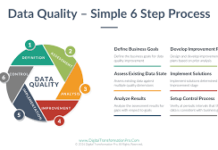Opening your payment methods beyond cash to include credit cards increases your potential customer base and broadens their purchasing power. Credit cards spur impulse buying, improving your cash flow. Since the transactions are electronically processed and verified, the chances of theft and insecurity concerns in your store are reduced. In addition, accepting credit cards gives you an edge over your competitors because most credit card holders find it a safe and convenient way to shop. However, there are things you should know before accepting credit card payments in your store. Read on to learn more:
The risk involved
Credit card technology is prone to data breaches from email phishing, hacking, and other vulnerabilities that cybercriminals exploit. This means that hackers and other criminals can steal your customers’ credit card data and use it to commit fraud. As part of your payment acceptance strategy, put in place risk management and security tools such as a credit card scanner to curb fraudulent transactions.
Merchant service providers
Merchant service providers, also called credit card processors, offer a service that allows you to accept credit card payments in your store. They provide software to see your transactions, chargebacks, fees, and more on a single dashboard. You may integrate your merchant services with the customer relationship management (CRM) software, point of sale (POS) system, or accounting programs.
Credit card processing equipment
The credit card processing equipment you need depends on the merchant service provider requirements, how you want to accept payments, and the systems you already have in place. Some stores may have mobile payment devices or kiosks and a credit card terminal at the checkout point. If you run an e-commerce store, your credit card processor may have different charges for online purchases or ask to buy a separate plan specifically for online services.
What credit card processing fees entails
Credit card processing fees are what you, the merchant, pay for each credit card sale and are usually predetermined by your merchant service provider. It involves assessment/ service fees, interchange fees, and payment processor’s markup. Other costs you may pay include a monthly statement fee, wireless access fee, hosting fee, POS hardware rental, and more. Some of the factors that determine how much processing fees you’ll pay include chargeback fees, PCI compliance fees, and annual account fees.
The cost of credit card processing
Credit card processors have several per-transaction fees and also provide monthly subscription programs. Most companies use the interchange-plus pricing model. However, credit card processing costs vary depending on the processor but include monthly, transaction, and flat-rate fees.
How to choose a credit card processing company?
When choosing a credit card processor, ascertain their security by ensuring that they’re PCI compliant, use advanced encryption technologies, and accept standard credit cards. For convenience, ensure that the merchant services can integrate with your software, such as the POS, CRMs, and accounting systems. Don’t forget to look at cost differences among different merchant service providers and any extra benefits like inventory management, ease of setup, and processing speed.
Endnote
Credit card payments are beneficial for both the business owner and the cardholder. Before you start accepting them for payment, familiarize yourself with everything there is about credit card payments.











